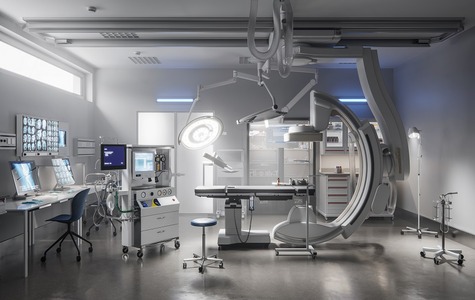- Medical Devices
- Thursday, 07 Jan 2021
Wearable Injectors Market to 2027 - Global Analysis and Forecasts By Product & Services, End User and Geography
According to our latest study on “Wearable Injectors Market Forecast to 2027 – COVID-19 Impact and Global Analysis by Type, Application, and End User,” the market was valued at US$ 5,791.23 million in 2019 and is projected to reach US$ 13,880.88 million by 2027; it is expected to grow at a CAGR of 11.6% during 2020–2027. The report highlights the trends prevailing in the global wearable injectors market, and drivers and deterrents pertaining to its growth.
Request Sample Copy Of this Report @ https://www.theinsightpartners.com/sample/TIPMD00002677/
Based on type, the wearable injectors market is segmented into on-body injectors and off-body injectors. In 2019, the on-body injectors segment accounted for a larger share of the global wearable injectors market. On-body injectors ensure comfort and ease of use, confer water resistance and flexible dosing features, and facilitate automatic warming of refrigerated drugs. These benefits have led to the rise in demand for on-body injectors. Moreover, the market for off-body injectors is expected to grow at a faster pace during the forecast period, and the projected growth is attributed to the fact that these devices are free of the risks of skin fitting issues and allergic skin reactions.
Factors such as the increasing chronic diseases prevalence, technological advancements and design development, and conventional drug delivery system limitations are among the major factors driving the wearable injectors market. However, the lack of adoption of wearable injectors in emerging countries impedes the market growth. Further, the increasing demand for biologics offers significant opportunities for the growth of the global wearable injector market players in the coming years.
The report segments the global wearable injectors market as follows:
By Type
- On-Body Injectors
- Off-Body Injectors
By Application
- Diabetes
- Oncology
- Cardiovascular Disease
- Autoimmune Disease
- Other Applications
By End User
- Hospitals and Clinics
- Homecare Setting
- Other End Users
Wearable injectors are rapidly gaining their prominence in the market owing to their capabilities in delivering a high volume of viscous formulations. The administration of pharmaceuticals via intravenous (IV) infusion is expensive in healthcare settings. Self-administration of subcutaneous injections is expected to save 30–70% of costs. Moreover, administration through conventional methods poses risks such as inaccurate dosage and needle stick injuries. The rise in the number of biologic drugs that are not suitable for oral administration has increased the adoption of wearable injection devices. Higher dosage volumes and viscous formulations of these drugs are further emphasizing the need for alternative injection methods such as wearable injectors. For instance, the enFuse wearable injector manufactured by Enable Injections is used for subcutaneous delivery of high-volume therapeutics outside a healthcare facility. The company has also introduced mobile monitoring and more significant volume capabilities to its high-volume wearable injectors.
Purchase Copy of this Report @ https://www.theinsightpartners.com/buy/TIPMD00002677/
A new category of wearable products has emerged, bridging the gap between functionality and cost while improving patient safety and quality of life. One such example is Stevanato Group’s cartridge-based wearable device, currently under development, received Best Innovation in Drug Delivery Device award at Pharmapack Awards in 2019. The product includes a disposable, wearable pod, and reusable handheld controller that serves as the user interface and control unit for the pod. This is used for varied therapeutic areas, including diabetes, hormone therapies, pain management, and Alzheimer’s disease treatment. Moreover, continuous development by leading players in upgrading the existing wearable injector portfolio is further driving the demand for wearable injectors. For instance, in February 2020, BD, a leading global medical technology company, completed a human clinical trial of the BD Libertas Wearable Injector. The award-winning injector is currently in development and is designed as a subcutaneous drug delivery system to deliver biologics with viscosities up to 50 cP in 2–5 mL and 5–10 mL configurations.
About Us:
The Insight Partners is a one stop industry research provider of actionable intelligence. We help our clients in getting solutions to their research requirements through our syndicated and consulting research services. We are a specialist in Life Science, Technology, Healthcare, Manufacturing, Automotive and Defense, Food Beverages, Chemical etc.
Contact:
Call: +1-646-491-9876
Email: sales@theinsightpartners.com
Related Industry Updates
Radiation Protection Apron Market is expected to reach US$ 205.73 million by 2030
Jan 05, 2024
Wound Drainage Systems Market Forecast to 2027 - Covid-19 Impact and Global Analysis - By Cook, Degania Silicone Ltd., Poly Medicure Limited
Apr 15, 2021
Medical Devices Market Size, Trend, research, Analysis, Competitive Analysis, Regional, and Global Industry Forecast to 2027
Jul 21, 2020
Food Allergen PCR Kits Market Forecast to 2027 - COVID-19 Impact and Global Analysis By Source ( Peanut and Soy, Wheat, Milk, Egg, Tree Nuts, Seafood, Others ); Food Tested ( Bakery and Confectionery, Infant Food, Processed Food, Dairy Products and Alternatives, Seafood and Meat Products, Other Foods )
Apr 16, 2021
Temporary Pacing Leads Market Insights & Deep Analysis, Future Scenario Till 2027
Dec 16, 2020
Global Packaging Adhesives Market 2020 Volume, Value, Sales Price, Specification Forecast to 2027
Dec 04, 2020
Advanced Medical Stopcock Market is expected to reach US$ 1,230.60 million by 2028
Jan 19, 2023
